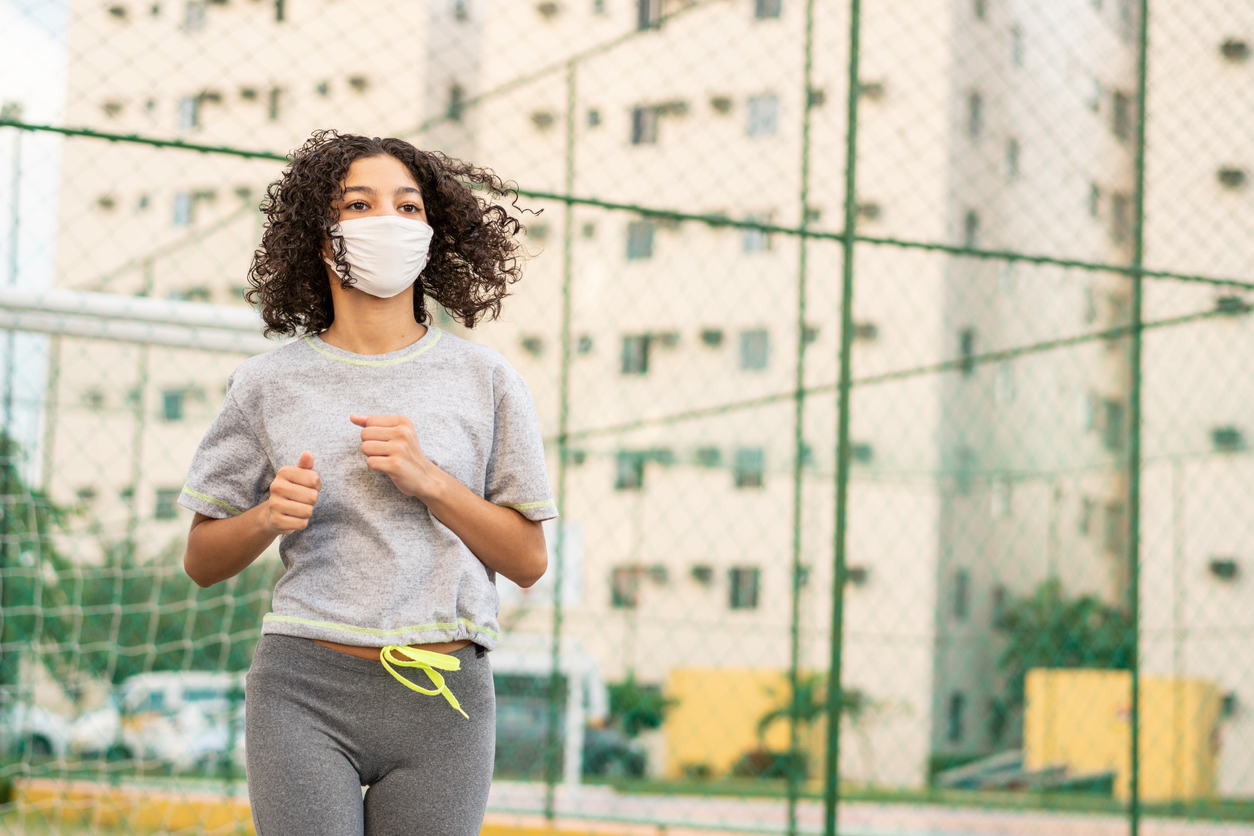Athletes and Isolation During the Continued COVID-19 Pandemic
In this time of COVID-19, no one wants sports back than the athletes themselves. In a recent study from researchers at the University of Wisconsin, 68% of the 3,243 high school student-athletes surveyed reported symptoms of anxiety and depression, an uptick of about 37% from past, pre-pandemic studies. Physical activity levels were down by about 50% and quality of life scores were lower. Simply put, athletes are feeling the cancellation of competition events and closure of training facilities.
New information is coming out that suggests damage to the heart and lungs in some of those who have been infected with COVID-19— which is concerning in athletes who push themselves to extremes. Athletes are facing the threat of a virus that can potentially pose an outright danger to their health and ability to compete at an elite level.

A new mindset is needed for this pandemic that seems to have no end in sight. There is little research into how to translate these mass shutdowns into something beneficial for athletes. Isolation during this pandemic can be thought of as similar to the process of rehabilitating from a sports injury. Athletes can take advantage of the same opportunities that rehabilitation offers, such as creating individual developmental programs and embracing this temporary respite for a physiological and mental reset. Studies have shown that athletes who take the time during rehabilitation to work on their athletic development often return to competition in better shape, and that echoes positively for their future aspirations.
It is in this context that researcher Igor Jukic with the University of Zagreb in Croatia, and colleagues from across Europe, recently made several recommendations for coaches, sports organizations, and athletes during this difficult time. Note that some of these are more or less applicable depending on the level of athlete (from youth to elite):
- Encourage and motivate the athlete to reset their mindset and use this break as an opportunity for personal development.
- Organize appropriate guidance and support for athletes by experts (sports coach, strength and conditioning coach, nutritionist, doctor, psychologist) by using video conferencing, e-mail, telephone, and/or text messages.
- Educate and encourage athletes to follow all COVID-19 guidelines (masks, physical distancing, etc.) to protect their own health and the health of the people around them.
- Ensure adequate living conditions in isolation (space, equipment, food, telecommunications). In an ideal world and depending on the competitive level of the athlete, the athlete would have access to cardio equipment, resistance training equipment and more. Knowing that most athletes will not have this array of equipment available, people may need to use creative options.
- Organize alternative sports skills training (kinesthetic ball training in a small space, visualization, virtual reality technical aids, video analysis, theoretical training) based on the athlete’s skill deficits, resources, and needs.
- Remind the athlete about the continued importance of good nutrition to fuel the body, even with uncertainty about the timing of returning to play.
- Take advantage of the relative down time to organize mental fatigue monitoring or mental training (mental self-help techniques and/or the support of a mental health expert).
- Encourage adequate recovery from training via sleep, breathing and meditation exercises, self-massage, stretching, etc.
- Unless it seems to fuel problematic obsessiveness, establish daily monitoring of the athlete’s health, wellness, physical fitness, recovery and workload (via phone, app, e-mail, or text message).
Athletes face unique challenges with isolation and uncertainty during this COVID-19 pandemic. But there are steps to help ensure that they bounce back in better shape physically and mentally.
References
- UW Health, More Than Two-Thirds of High School Athletes Report Anxiety and Depression Since Pandemic, July 2, 2020.
- Jukic I, Calleja-gonzález J, Cos F, et al. Strategies and Solutions for Team Sports Athletes in Isolation due to COVID-19. Sports (Basel). 2020;8(4)
